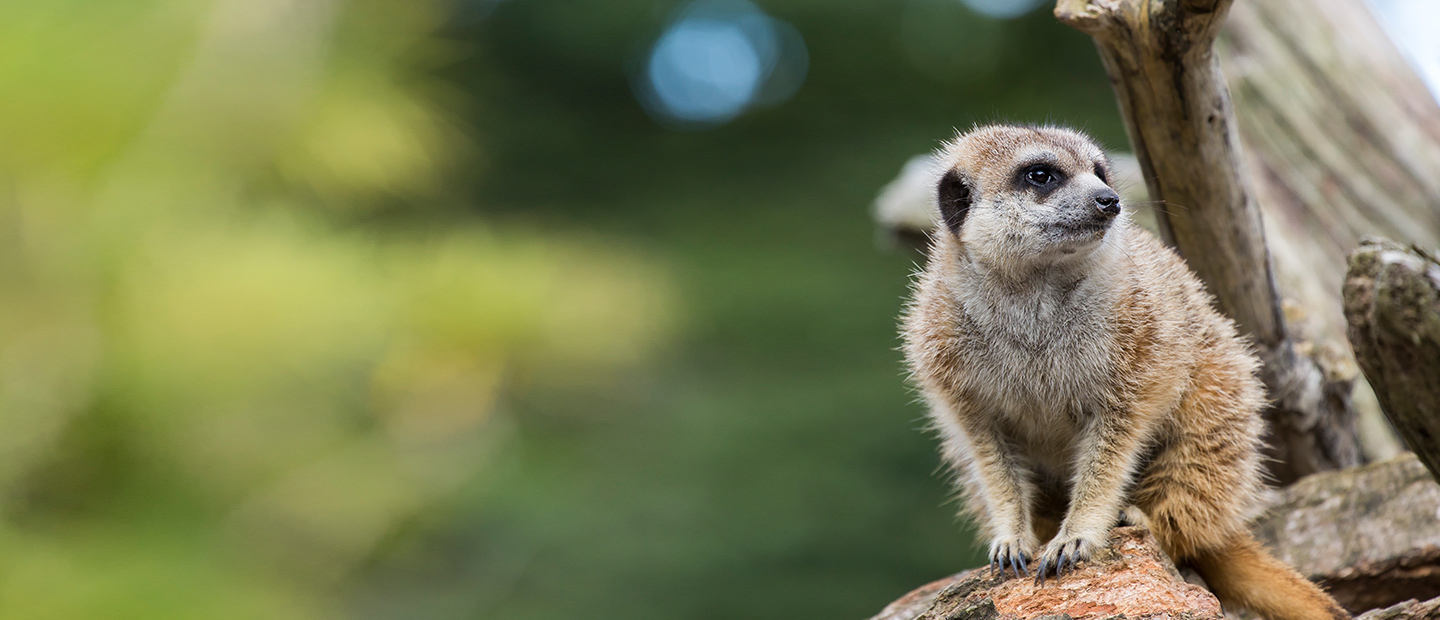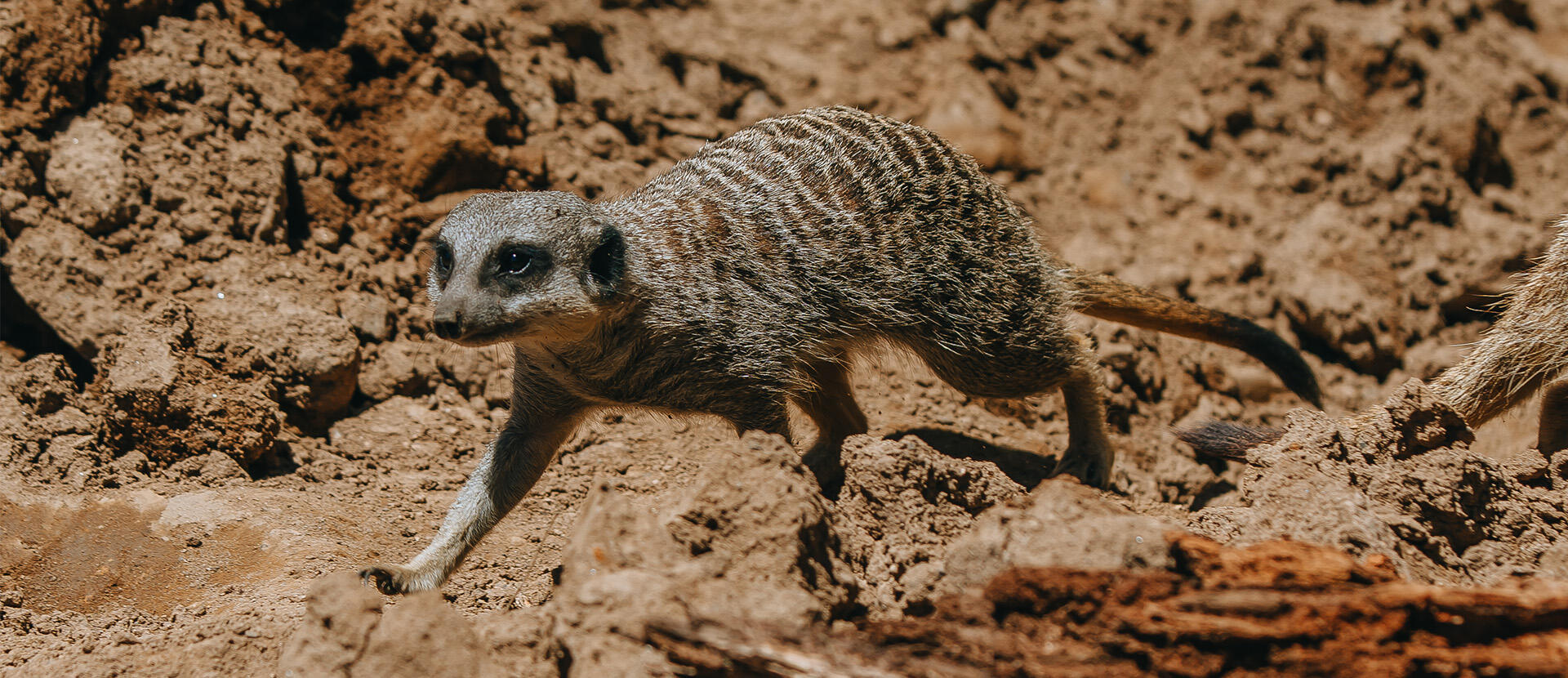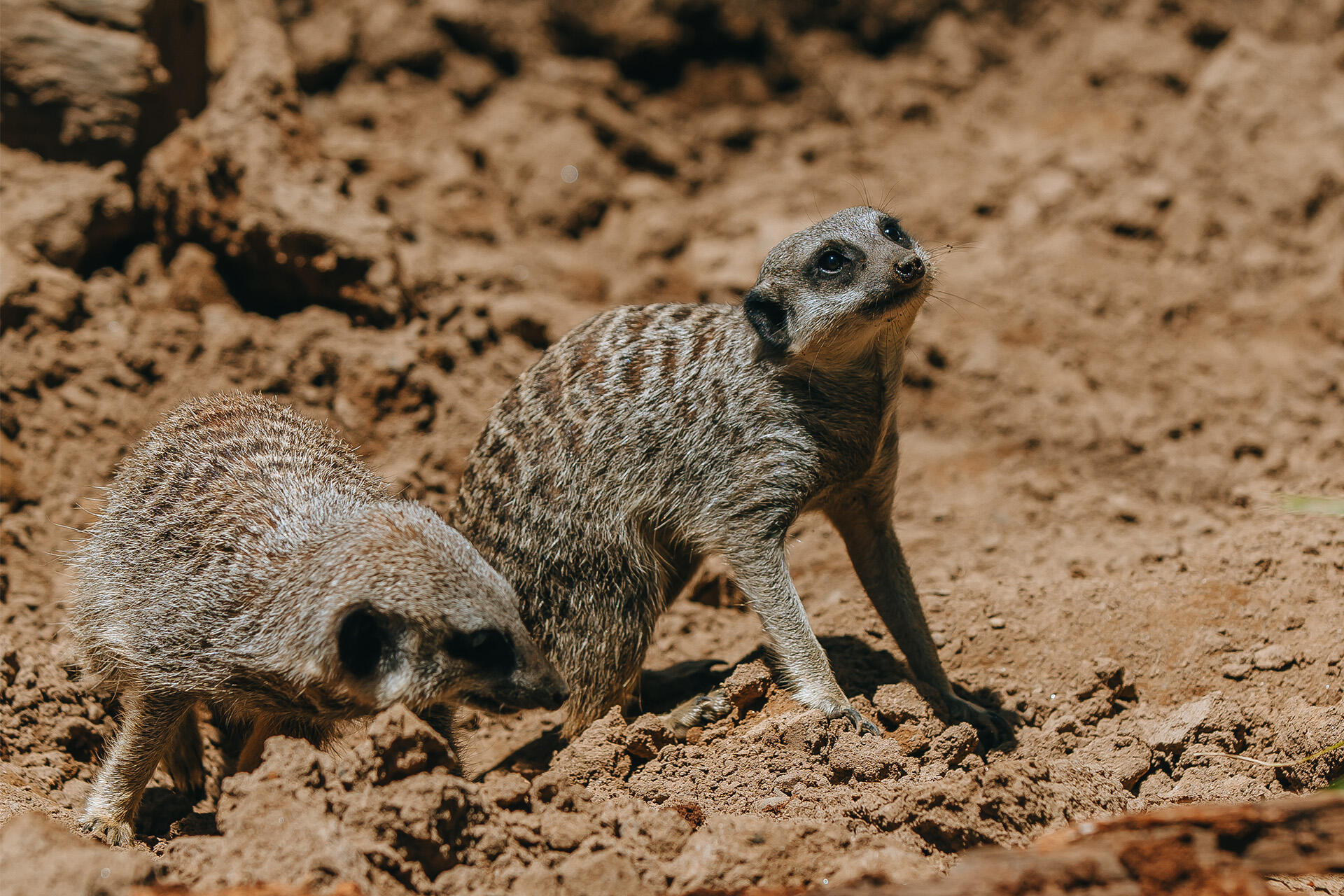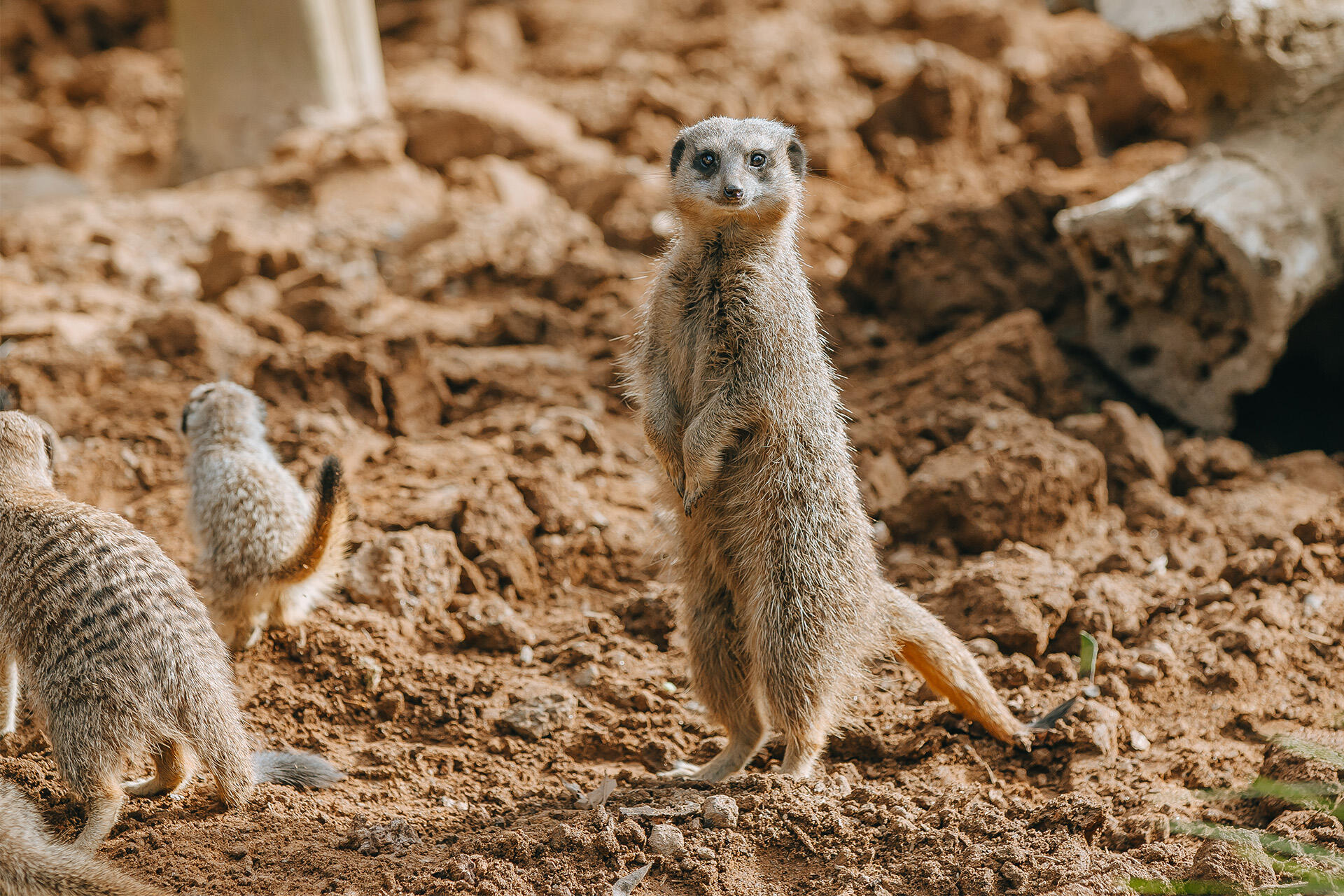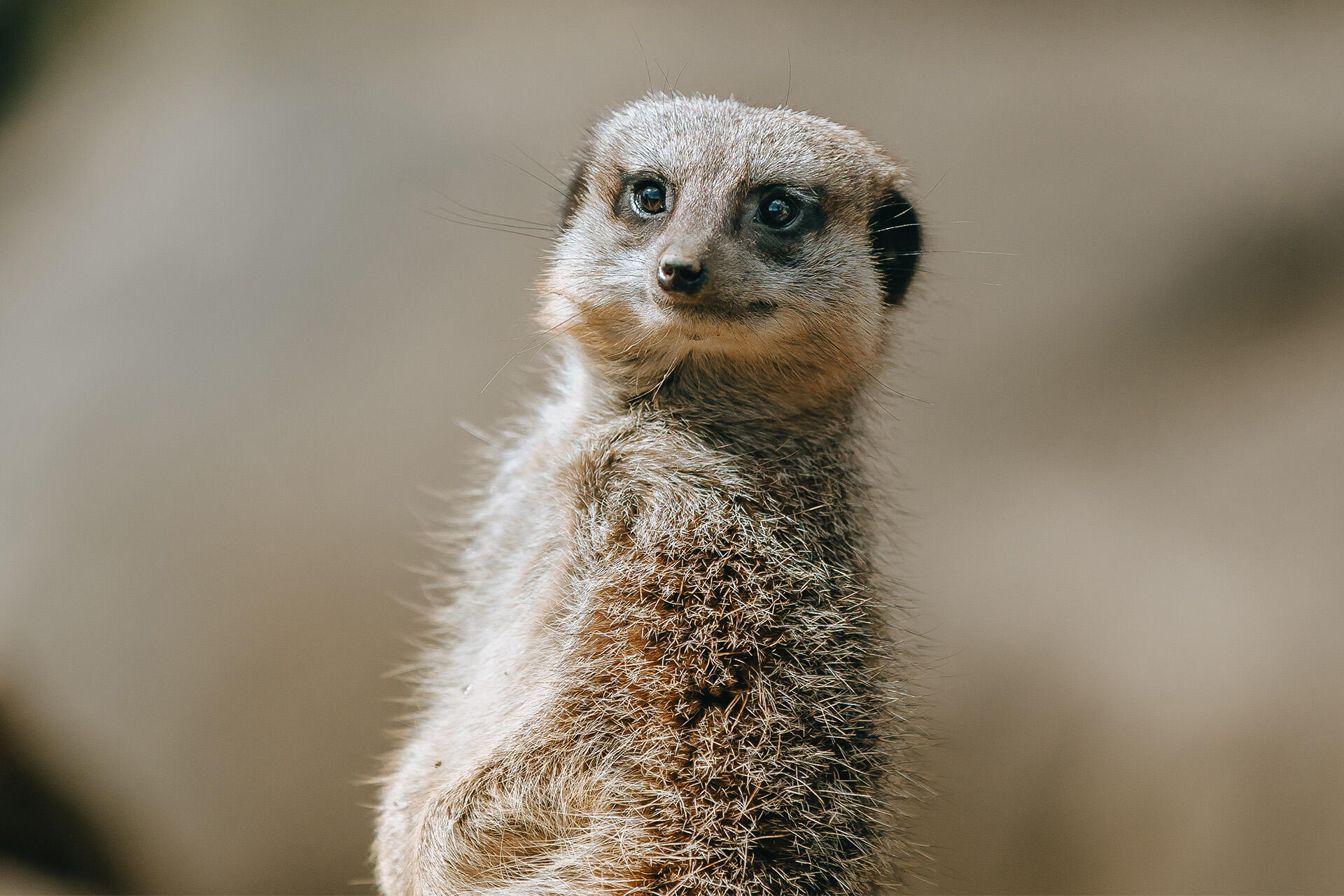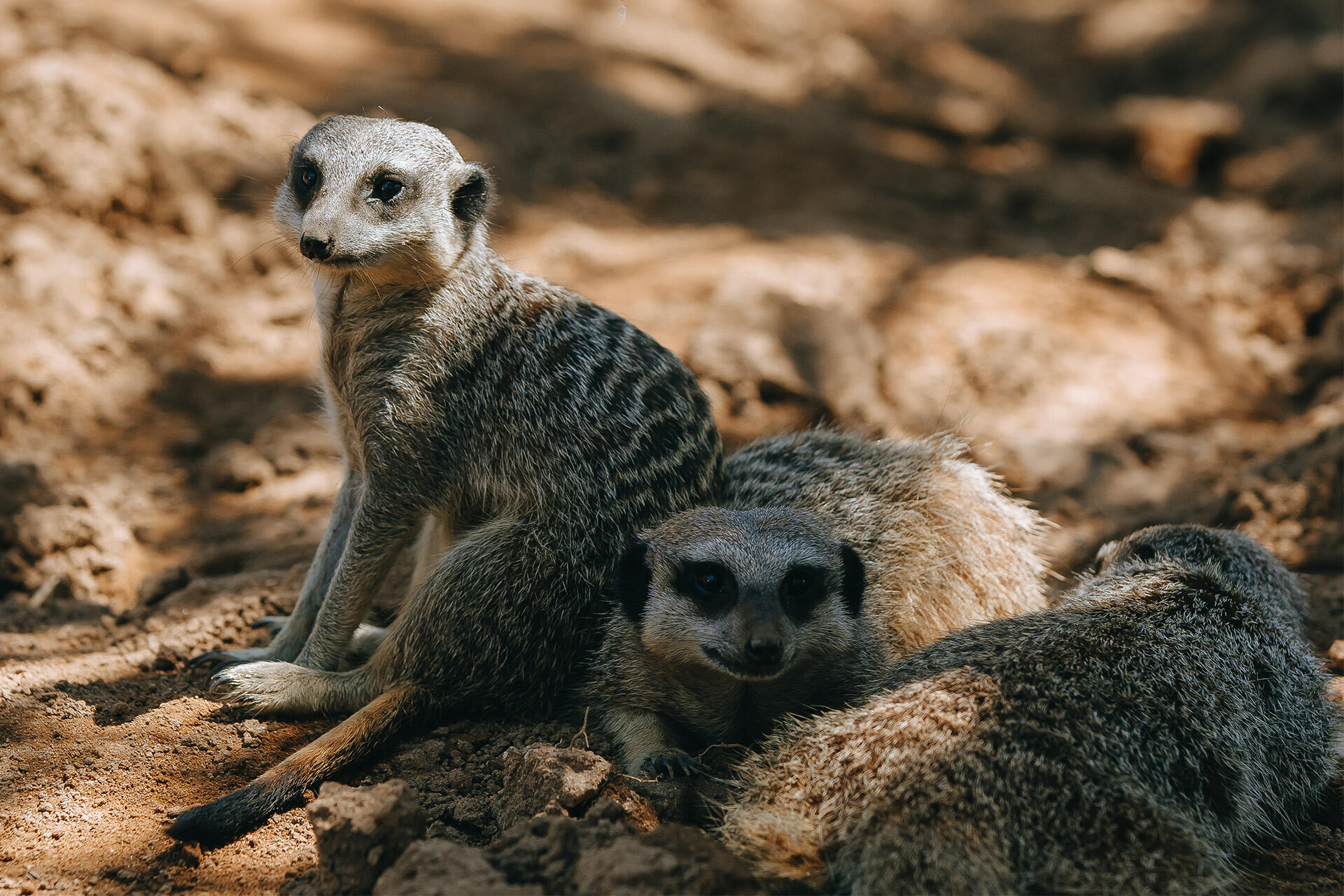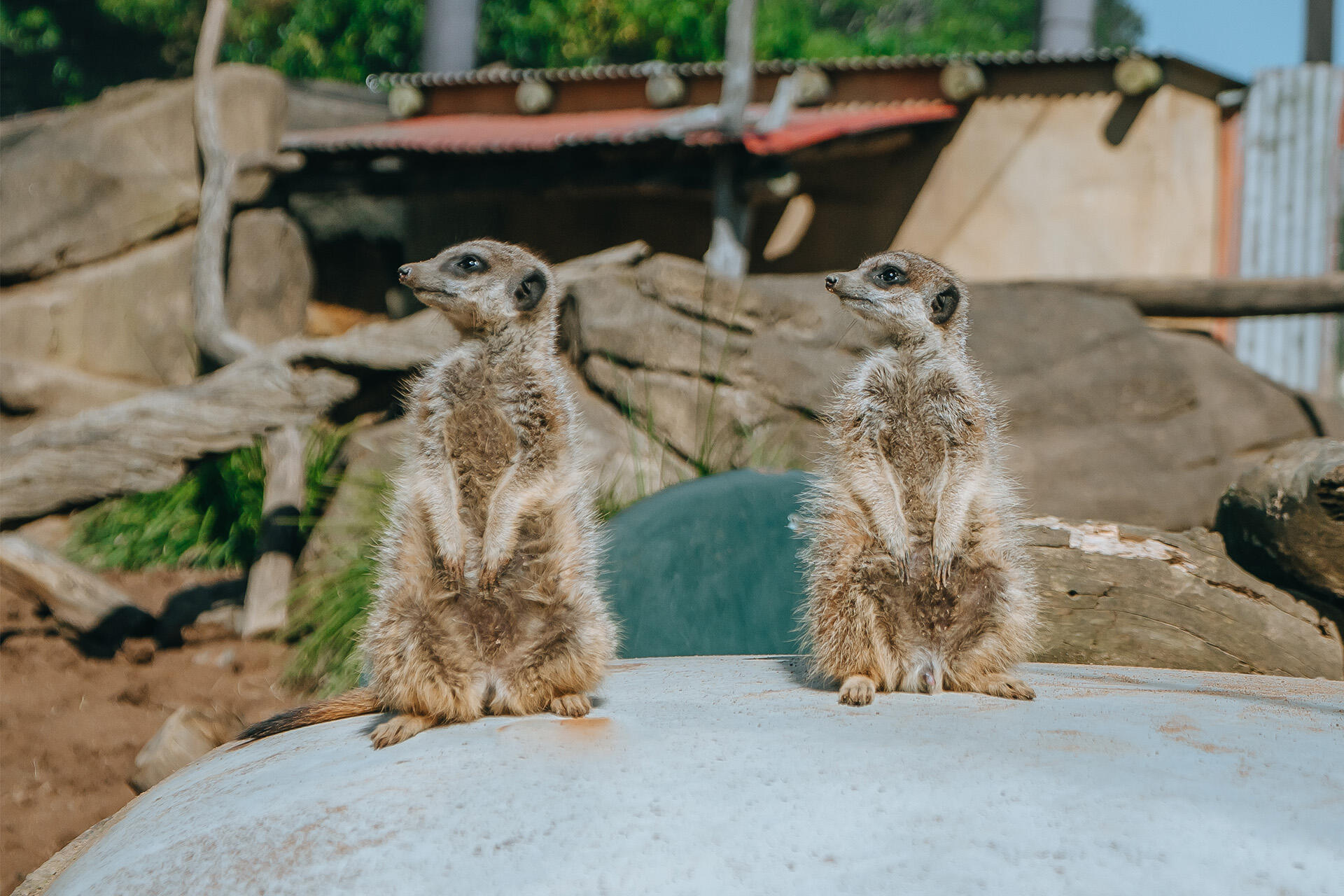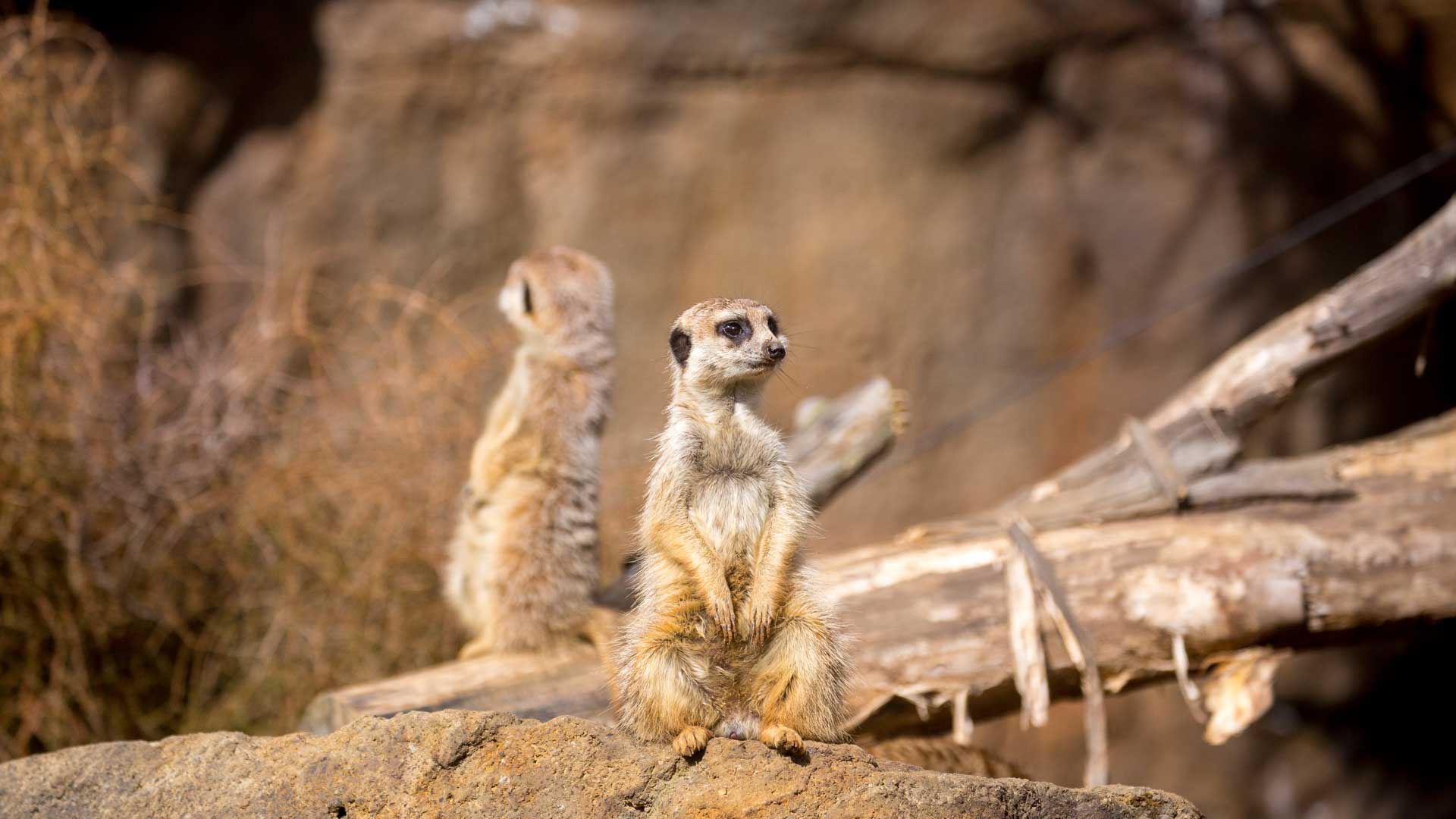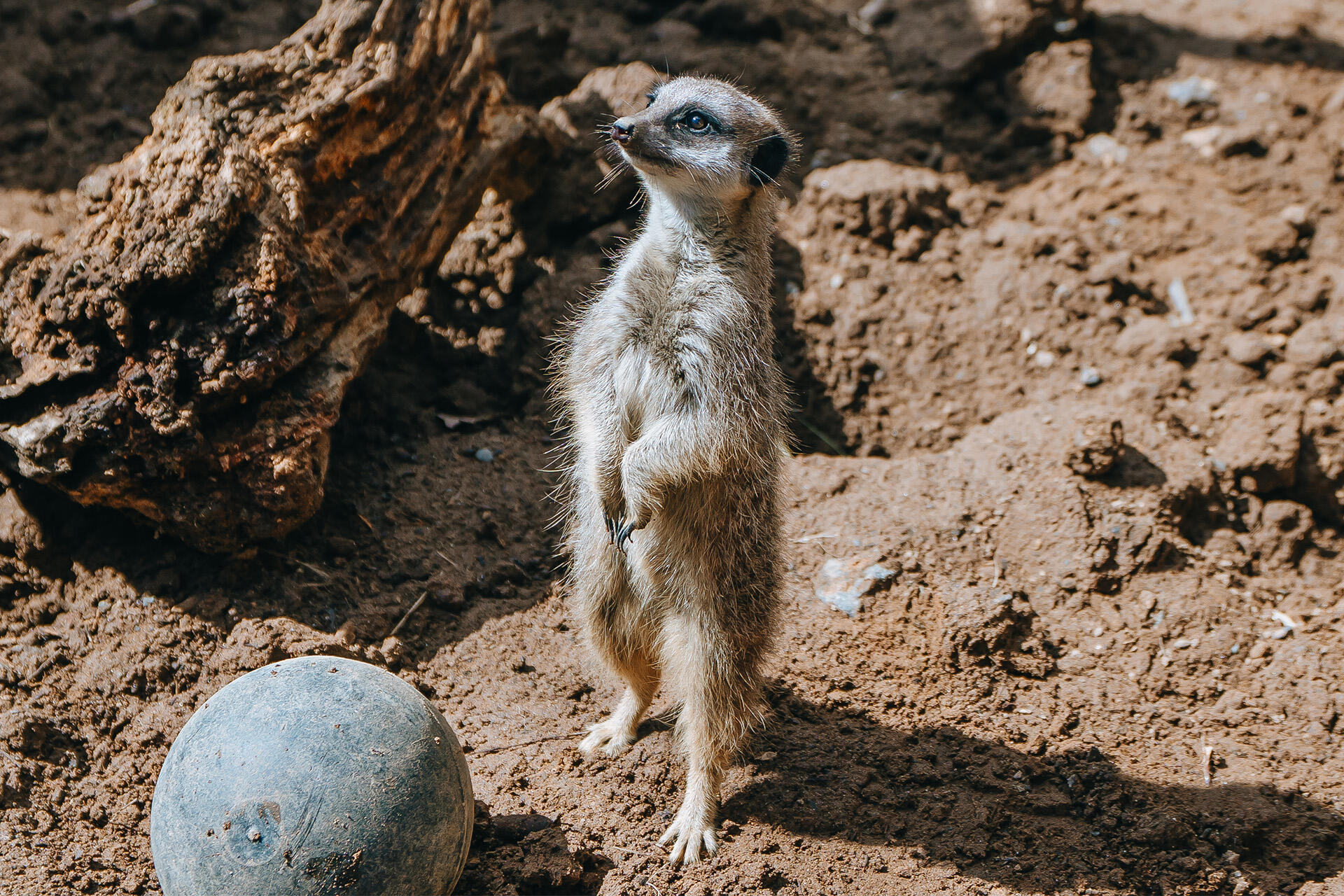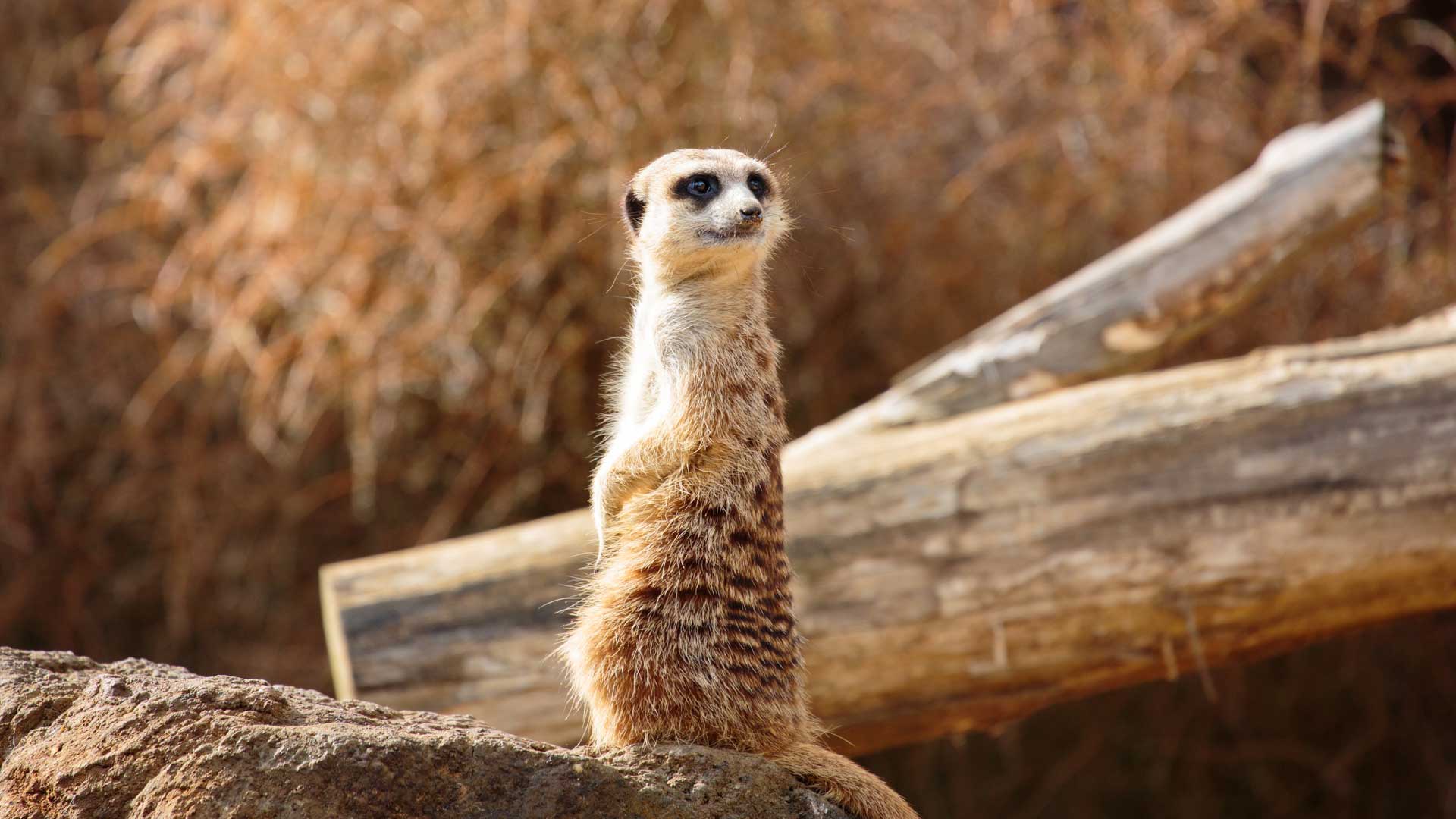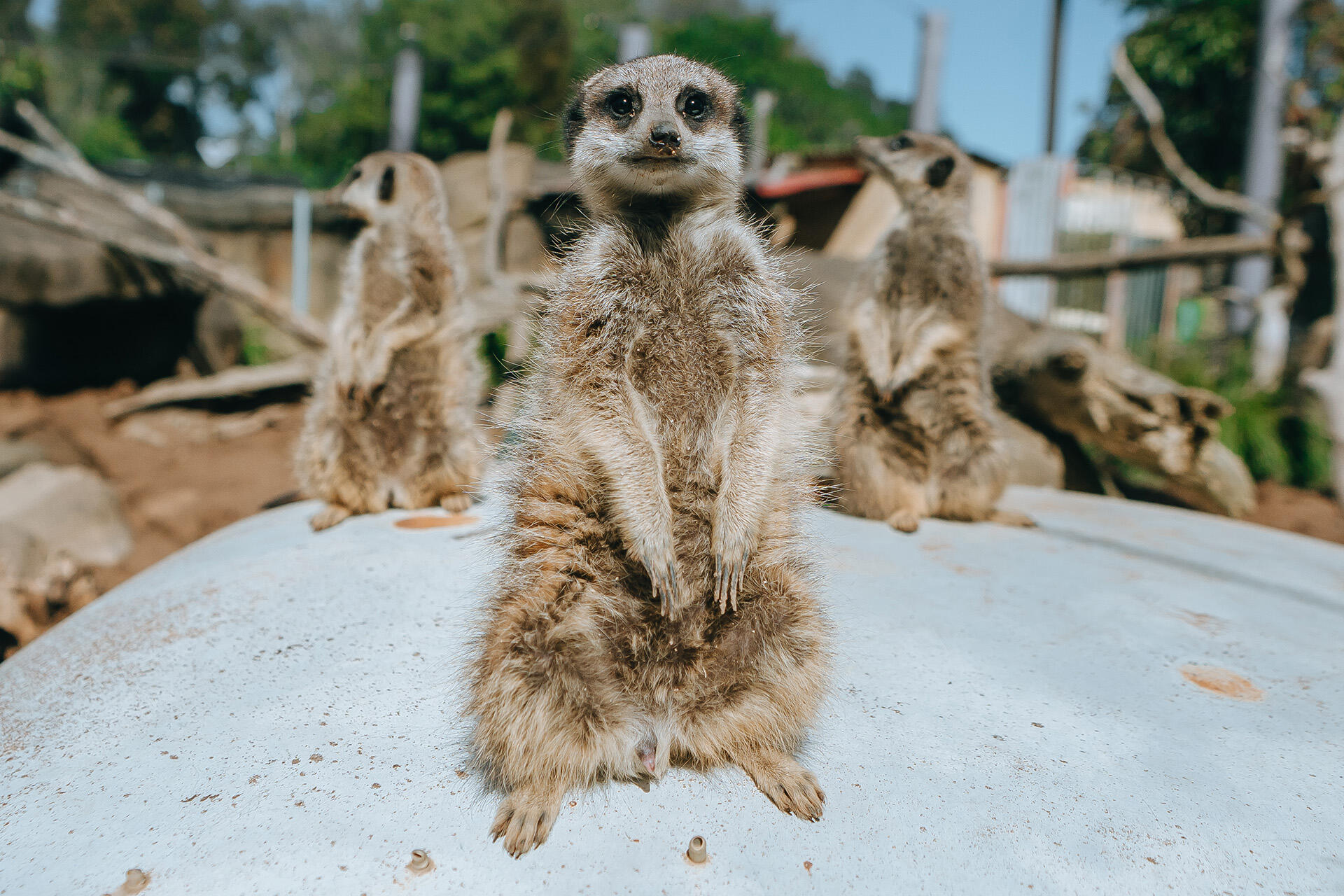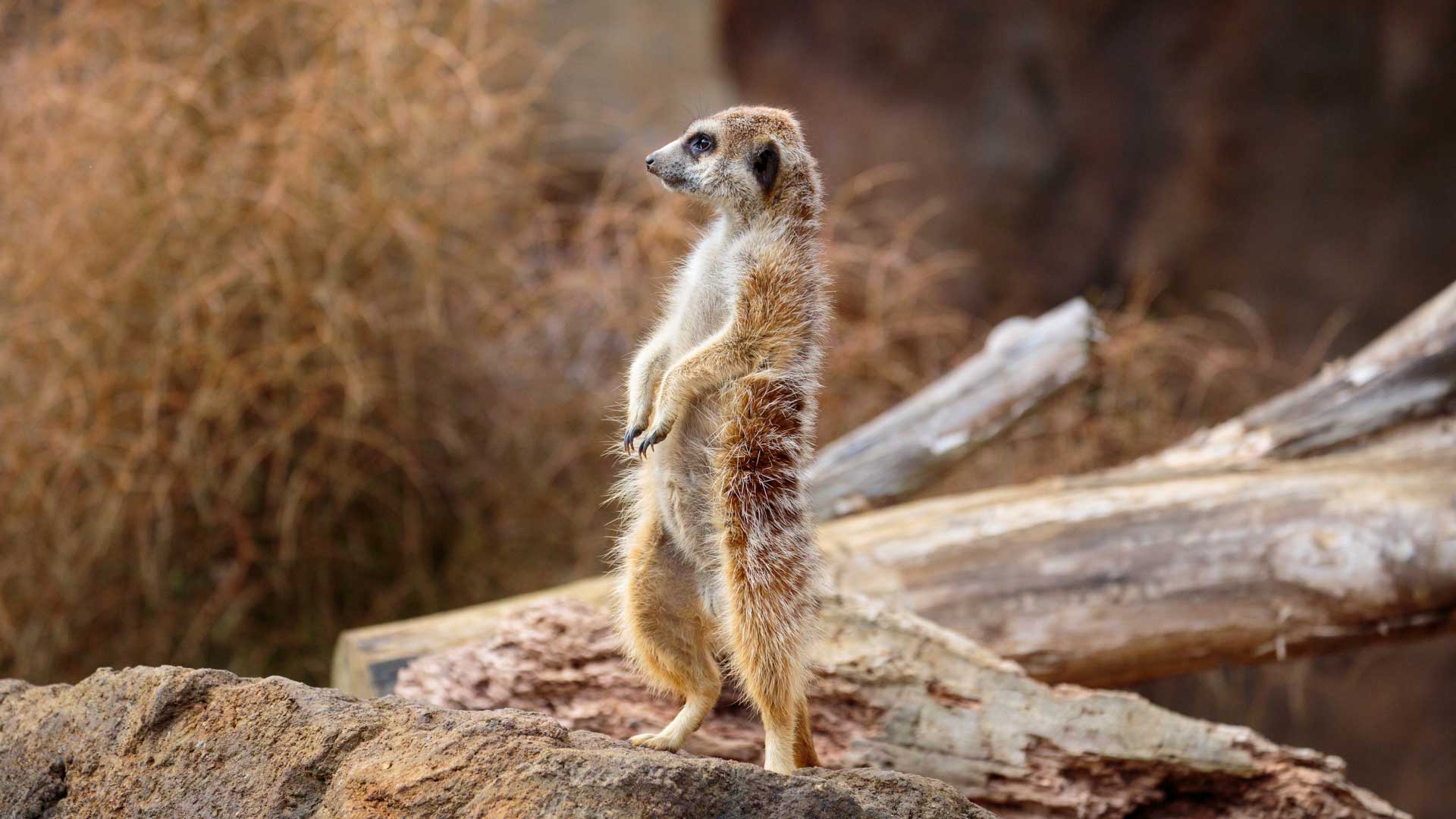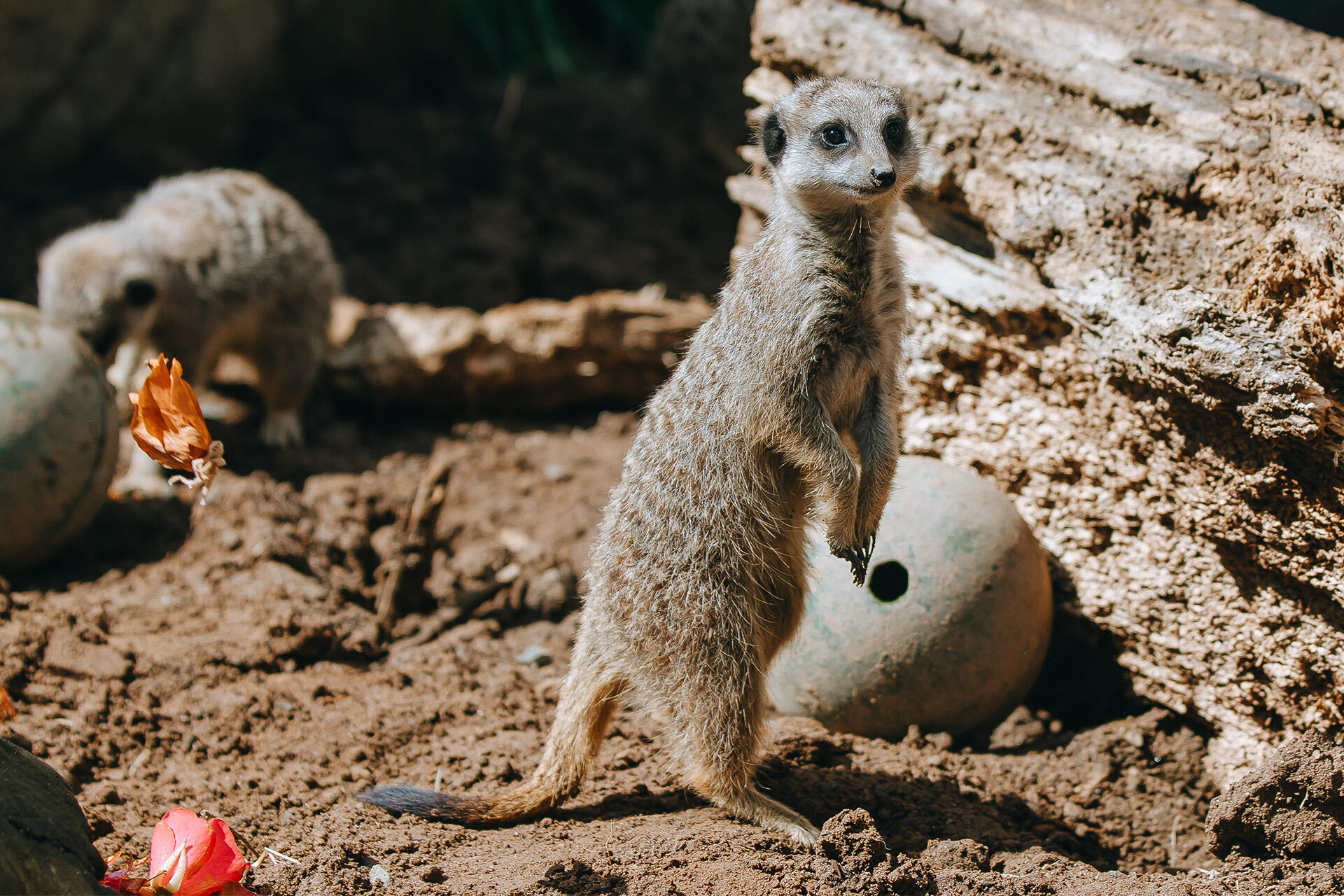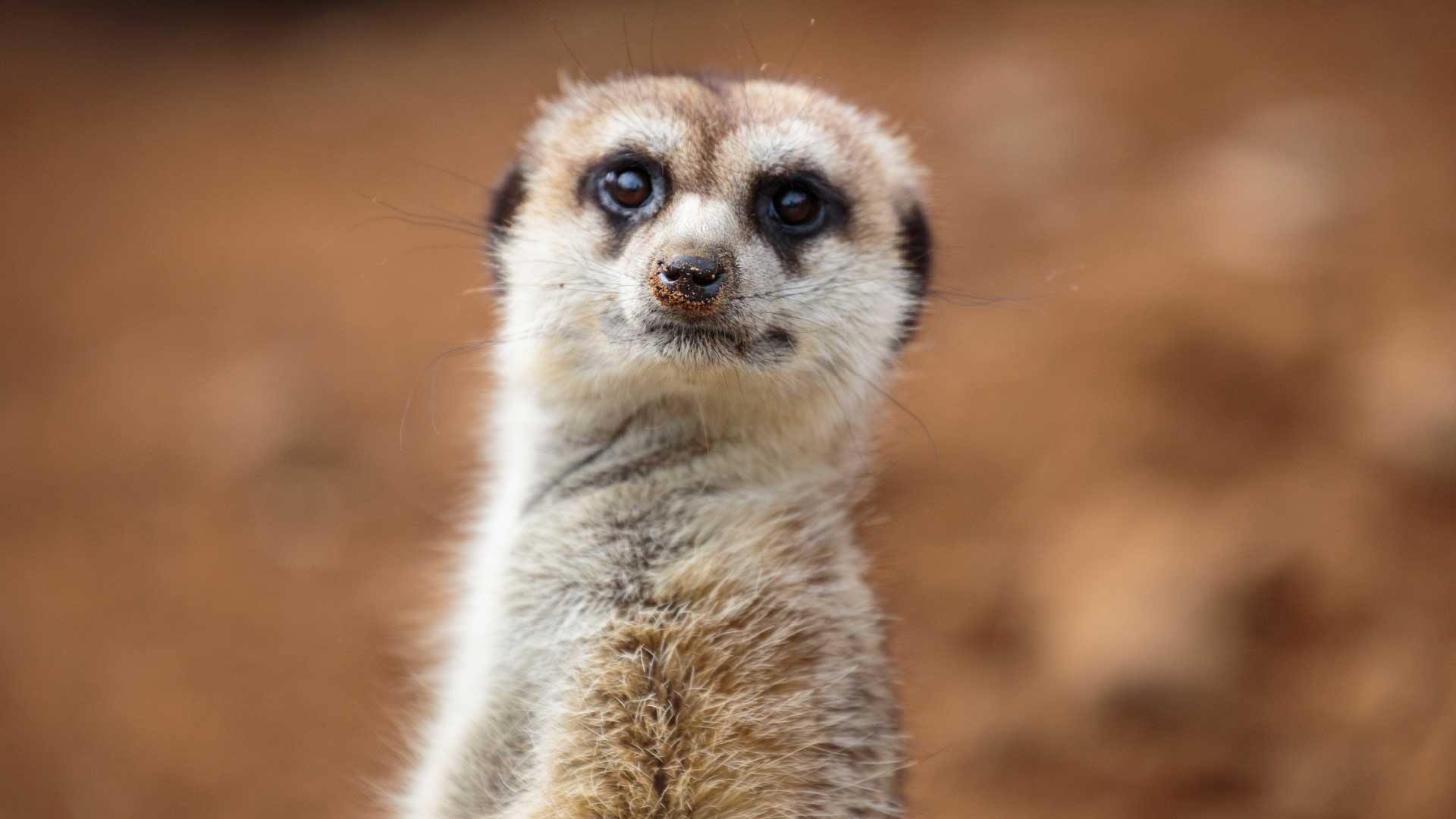Do I look cool in my shades?
A native species in Southern Africa’s savannahs, meerkats are found across South Africa, Botswana, Zimbabwe, and Mozambique. This region gets little rainfall and summer temperatures can reach 40°C. While this can be uncomfortable for humans, meerkats have a few adaptations which help them thrive. Dark patches around their eyes act like natural sunglasses, helping reduce the glare of the sun. They use their front paws to dig cooler burrows deep underground and derive water from the plants and animals they eat.
Welcome to Meerkat Manor
These small burrowing animals live in large underground networks with multiple entrances, which they leave only during the day. If temperatures are too high, meerkats will return to the burrow to cool off. Their habitat at the Zoo provides substrate to encourage digging, so they can build their own! A meerkat can dig through a quantity of sand equal to its own weight in just seconds. Areas with elevation are provided to assist with natural behaviours like sentry duty.


